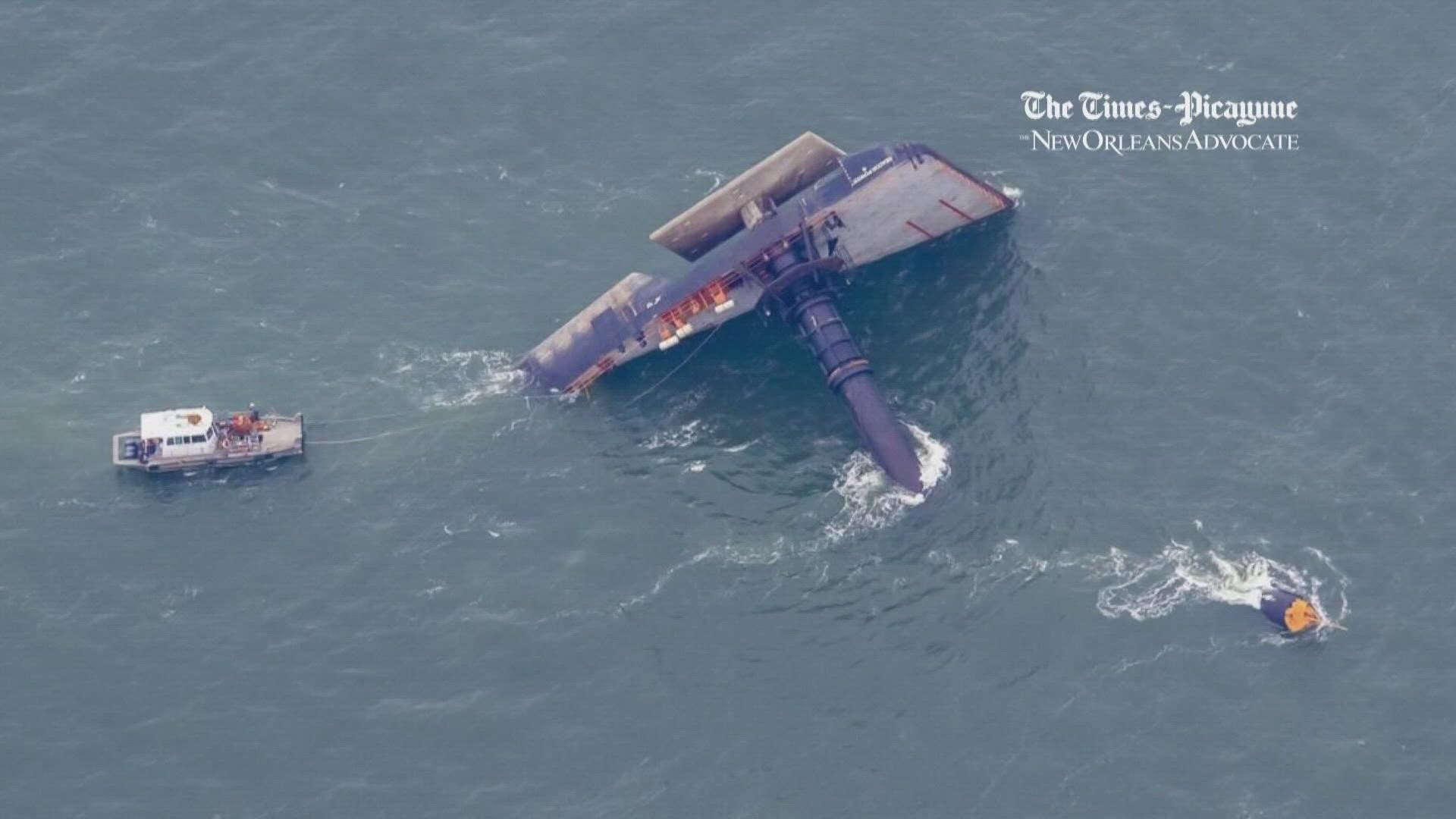PORT FOURCHON, La. — The United States Coast guard has completed its two weeks of hearings into the Seacor Marine Incident.
Friday marks four months to the day since the vessel capsized off the coast of Port Fourchon, in hurricane-like weather.
Before the hearings adjourned, the Coast Guard Board of Investigations asked the room to stand and hold a moment of silence for the thirteen men either missing or found dead after the incident.
The end of the hearings nearly brought Board Chairwoman, Captain Tracy Phillips of the United States Coast guard, to tears.
“Our investigation can’t change the outcome of this tragic event, but our team is determined to examine every aspect of the incident, push for any needed changes to enhance maritime safety, and prevent similar casualties from occurring in the future,” she said.
Captain Phillips also thanked those who testified, the NTSB, and all who had a role in making the hearings happen.
Over the course of the two weeks of testimony, the public heard the terrifying stories of the life or death moments of that day.
First Mate Bryan Mires was one of six survivors of the 19 onboard and told the board how he got off the ship.
“So I grabbed the door, and we were going over. And that’s when I watched Dave… that’s when I watched Dave fall. I never saw him again,” said Mires.
In total, 31 witnesses shared their stories and expert opinions. The board heard detailed timelines of the weather conditions and of marine warnings. They examined the evidence and asked witnesses if the crew was warned, when, and how.
Seacor executives answered detailed questions on policy and said changes have been made to best practices after the capsize incident.
Rescuers told officials about the churning gulf waters and blinding conditions, and the struggle to save survivors.
Jason Jennison, a rescue swimmer, said he’d never experienced such extreme conditions.
“The wave action was crashing over them to the extent that we had seaspray hitting the helicopter at 80 feet, every five or ten seconds. A wave would crash over them,” said Jennison.
With dozens of hours of testimony complete, the Coast Guard will write a full report of its findings and make recommendations.
When that report is published, it will be available to the public.
Many of the families of victims have filed lawsuits, which have yet to make their way through the court system.

